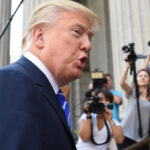(Natural News)
Social media has long been criticized for its negative effects on young people’s self-esteem and setting standards of beauty that are impossible to live up to, but TikTok takes it to a whole new level by hiding users it deems unattractive, according to internal documents that were recently obtained by The Intercept.
The Chinese video sharing app, which boasts hundreds of millions of users from all over the world, allows people to live stream and create their own short videos to share with other users. The internal documents show that TikTok instructed its moderators to suppress posts that were created by users who are considered too ugly, poor or disabled to appear on the platform.
According to The Intercept, these Chinese policy documents and conversations they have had with multiple sources who are directly familiar with the censorship at Tiktok illustrate how the company has been making a concerted effort to ensure its videos largely feature more attractive people.
In one moderation document, physical features that are considered worthy of invisibly barring a person include having an abnormal body shape, being too thin or obese, having an obvious beer belly or being a dwarf. In the category of “ugly facial looks” are features like facial deformities, missing front teeth, older people with too many wrinkles, a crooked mouth, and obvious facial scars.
Not only do they only want to feature people who are attractive, but they are also overly concerned about the environment in which their videos are shot. The document says that videos that appear to be shot in an environment that is “shabby and dilapidated,” such as those in rural fields, dilapidated housing and slums, should be suppressed. In addition, videos that are shot indoors in homes that have cracks in the walls, old decorations or dirty or messy environments must be systematically hidden from new users.
The supposed justification for this behavior is TikTok’s desire to maintain an aspirational tone in hopes of attracting new users. Many social startups do place a priority on growth and user retention, but these exclusionary practices are more extreme than most.
TikTok also censors political speech
In addition to keeping certain content from people deemed unattractive from becoming popular, a second document showed rules used by the platform for censorship. These rules pertain to a broad range of topics that are considered embarrassing or unflattering to government authorities in China, such as defamation towards civil servants, religious and political leaders as well as endangering national honor and interests. In September, The Guardian reported that TikTok instructs moderators to censor any videos that mention topics such as Tibetan independence, the religious group Falun Gong, and Tiananmen Square.
Several sources at TikTok who spoke anonymously with The Intercept due to fears of professional and legal reprisal insisted that these rules are being handed down by TikTok owner ByteDance’s Beijing headquarters and then filtered to the platform’s 12 global offices.
TikTok has been increasingly coming under fire lately for the ways it conducts business. American officials have restricted its use by government personnel due to the potential national security risk, with military staff and soldiers banned from using the app. In November, TikTok execs refused to go in front of a Senate Judiciary Committee hearing that examined the relationship between the tech industry and China. Earlier this year, they were fined $5.7 million for illegally collecting the personal data of children under the age of 13.
Sources for this article include:






